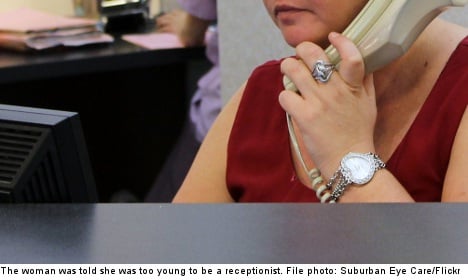The 20-year-old woman applied for a summer job as a guest house receptionist, armed with a CV boasting of experience in similar jobs and a secondary school education including a programme in the Hotels and Tourism field.
The guest house cited the woman’s age as the reason she would not be hired.
“Thank you for your application, but unfortunately we’re looking for someone older,” management responded.
The lodge justified the move by explaining they have a policy of only hiring people who are at least 22-year-old.
The job was eventually given to three other people, all older than the woman.
The slighted 20-year-old contacted Sweden’s Equality Ombudsman, which investigated the case and determined the rejection was a clear case of age discrimination.
“According to the discrimination laws, every prospective employee has the right to be judged on their merits when seeking work,” ombudsman Agneta Broberg told the Lag & Avtal newspaper.
“In this case, it didn’t happen as the woman concerned was deemed to be too young.”
The guest house admitted to violating discrimination laws, and the woman was awarded a 50,000 kronor settlement.
The Local/og



 Please whitelist us to continue reading.
Please whitelist us to continue reading.
Member comments